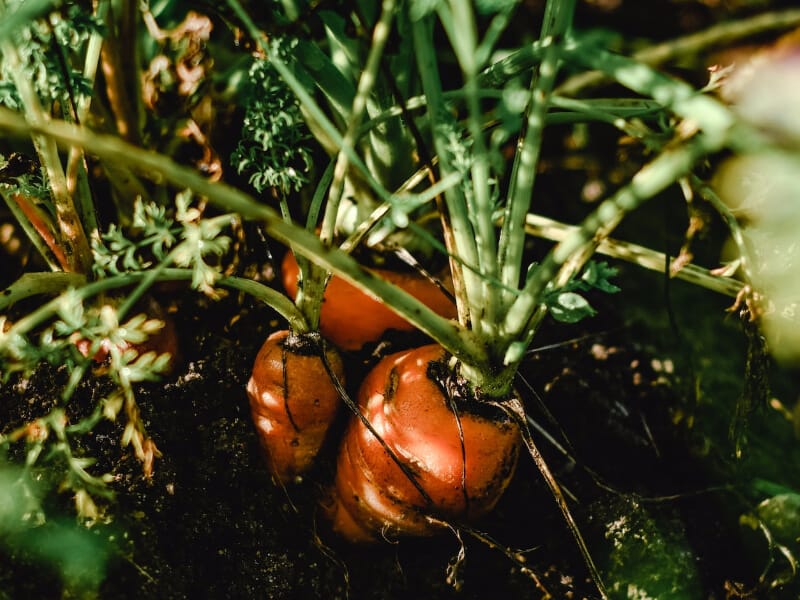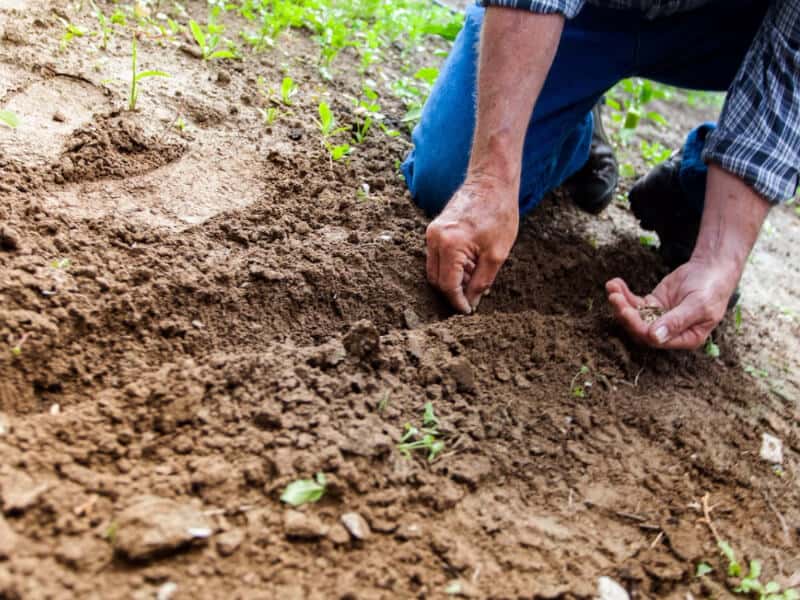5 Best Winter Vegetables to Grow in Your Garden
Although most of the veggies have been harvested already, this doesn’t mean that all your garden needs to be forgotten until next spring. You can grow some veggies over the winter and keep a steady stream of fresh-tasting things to eat.
At this time of the year, it may be too late to plant some types, yet there are still veggies you can grow if you go about things in the right way. Here we will look at preparing a garden to fend off the coldest weather and the five best vegetables to grow through the coldest time of the year.
Top Five Vegetables to Grow in the Winter
Carrots
When you think about planting winter carrots, you need to do this around 12 weeks before the first frost date. While they won’t be harvested then, it does mean they will be reaching maturity. The good thing with these winter carrots is their growth will be stunted when frost hits, but they will remain fresh.
To protect your carrots in the cold weather, you can cover them with a good layer of old leaves or straw. Depending on the levels of likely snow in your area, it can be sufficient to mulch them with just leaves. However, remember that the colder the winter, the more protection you need.

Kale
Kale can be one of the easiest veggies to grow in cold weather, and it gets sweeter as a result. If you want to plant, then any time is okay, although late August is preferable.
Kale is hardy against these colder temperatures and can survive when the temperature drops to freezing. Kale loves slightly alkaline soil, and if you are likely to have heavy snowfall, then some form of protection is advised to prevent breakage.
Spinach
The cold can be the best friend for spinach. You can plant this and pluck leaves as you require them, and they will grow back. It is a hardy vegetable and can sit after a bad storm waiting for the sun to come back so it can deliver some more growth.
You can direct seed this and cover it with clear plastic or glass to encourage germination across the top of the garden bed. While these veggies don’t require much maintenance, it is better to help them along the way.
It can be grown in containers or a raised bed, making it easier to protect. A sunny location is best suited for this veggie; it will produce sweet leaves just as you need them.
Lettuce
Lettuce doesn’t like hot weather, so wintertime can be ideal if it doesn’t become too cold and the ground freezes. This makes them an ideal crop to grow undercover. They will be content if they have cooler days and plenty of moisture.
If you have a greenhouse or cold frame, or even plastic tunnels on a raised bed can be enough to give them enough protection. Choosing the hardier varieties of lettuce, which thrive better in cooler weather, is advisable.
Broccoli
Being one of the healthiest veggies you can get, there is good reason to grow your Broccoli. These take between two to three months before they are ready, and planting at this time does mean you can have a harvest in time for the New Year.
Like some other veggies here, you can grow Broccoli in pots, so doing this or using a raised bed can be ideal. Each plant takes around three to four square feet of space, so you need one per pot or spaced in raised beds.

Winter Growing Tips
These are just a few plants you can grow in your veg garden, yet it is advisable to follow a few helpful tips to give your veggies the best chance to fight off the harshest weather.
Start your seeds in trays – Depending on your home climate, you will need careful timing to thoroughly use the window available for planting. When you start your seeds in trays, you can give them a head start. Once they are ready, you can transplant them to your growing beds.
Use raised beds or containers – wet weather can hinder plant growth if you grow directly in the ground. However, when filled with potting soil, both raised beds and containers drain much easier and prevent overwatering. These can freeze quicker than the ground, but they also warm much faster if they are sunny. A good layer of mulch around your plants’ base can help retain warmth.
Wind – many new gardeners consider the wet and the cold yet overlook the effect of strong winds. Creating a windbreak or keeping your plants in poly tunnels or row covers can prevent breakage. One thing to be careful of with polytunnels is the leaves touching the plastic. Also, the leaves will freeze if there is frost, so keep them away from the side of the tunnel.
Plant cover crops – once plants are harvested over the winter, you may have a dormant bed. Cover crops can introduce nutrients into the soil when you till them in the spring. These can also prevent soil erosion in your larger raised beds in heavy rains.
Watering your garden – if you need to water your garden during these colder periods, be sure to do this before the ground freezes. The water can act as an insulator to the roots because dry cold causes more damage than wet cold. Also, be sure not to wet the leaves when watering.
Winter gardening can extend your growing season considerably. There are other veggies you can plant that will remain dormant. However, the ones above need a south-facing area to flourish as the rest of your garden goes into a deep slumber, ready for spring to arrive.




